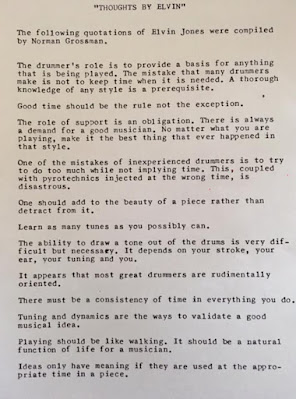Let’s start the meat of this series with the rhythm of forró that many drummers are familiar with on one form or another, baião. For most drumset players, baião simply means this groove:
And I wouldn’t even say that that’s wrong per se. It’s just missing a lot of nuance that makes a baião what it is. And without that nuance one could also be playing a forró or a xaxado as all three of these styles have this cell in them:
But it’s the way that that cell is articulated, as well as the other percussion and melody parts surrounding it that differentiate the three styles.
In this post I'll be referring to the instruments of forró. If you're not sure what I'm talking about, be sure to check out part 1 of this series.
The zabumba is played with both dead strokes (which mute the head and give a short, staccato sound) and open strokes (which allow the head to ring out). The placement of the closed and open strokes is part of what differentiates baião, forró and xaxado. In a baião, the first stroke is muted, while the second is open.
Baião also tends to be driven more by an 8th note subdivision, rather than a 16th note subdivision. That’s not to say one wouldn’t play 16th notes at all. But in baião the bacalhau plays mostly 8th notes with less 16th note syncopation. The most common bacalhau parts are:
Put together, some standard baião interpretations would look like this:
This 8th note subdivision mirrors the melodies which, in baião, are also 8th note heavy and are more relaxed and lyrical. Baiãos also tend to be played and medium tempos. Check out Luiz Gonzaga singing “Baião”. It’s quite legato, and sung almost entirely in 8th notes on the beat at a very reasonable and groovy tempo.
The open sound of the zabumba on the “a” of 1, and the relative lack of variations filling out beat 2 provide the more fluid melodies of baião the space they need to breathe.
I believe it's because of that space that variations and fills in baião are used more sparingly than in other forró styles, but here are some ideas you might come across:
Most of these variations show the bacalhau on the upbeat, but you could easily play the other bacalhau parts above.
To apply this to the drumset we don’t even need to re-write the part. Simply play the bacalhau part on your snare drum (a cross stick is probably most appropriate), and the low zabumba part on your bass drum. Given that the closed and open strokes really characterize the different rhythms you may even want to try to imitate this yourself on the bass drum by burying the beater and playing off the head, but it certainly isn’t easy to coordinate at first.
If you’re able, I would play all four subdivisions on the hi-hat as this most closely mimics the triangle part which is integral to forró grooves:
Most drummers tend to play
with the right hand, presumably out of habit from playing jazz and other styles that rely heavily on that rhythm. But if the tempo or your current ability won’t allow you to play all four 16th notes, I feel that
captures the essence of the triangle more, especially if you play a small lift on the &, or the e&.
You could also try something I’ve been experimenting with lately, which is playing 1e& on the hi-hat with your right hand, lifting on the &, and snapping the hi-hat shut with your left foot on the “a”, giving you all four subdivisions of the triangle.
Below are all the variations we looked at today, orchestrated for triangle and zabumba. Drop me and e-mail for a PDF.
In the next part of the series we'll look at the forró rhythm and how it differs to baião.















